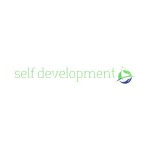Professional development refers to the process oflearning and growing in one's career or profession. It is the ongoing process of acquiring new knowledge, skills, and experiences that can enhance one's job performance, as well as one's personal and professional growth. Professional development can take many forms, including attending conferences, workshops, and training programs, as well as participating in mentoring and coaching relationships.
Why Professional Development Matters
Professional development is essential for career growth and advancement. In today's fast-paced and ever-changing business environment, staying competitive requires continuous learning and adaptation. Professional development allows individuals to stay up-to-date with industry trends, new technologies, and best practices, which can help them to become more effective in their roles and increase their value to their organizations.
In addition to enhancing job performance, professional development can also lead to personal growth and fulfillment. Learning new skills and gaining knowledge can help individuals to feel more confident and capable, which can lead to increased job satisfaction and a sense of fulfillment in their work.
Types of Professional Development
There are many different types of professional development opportunities available, each with its own benefits and drawbacks. Some of the most common types of professional development include:
1.Conferences and Workshops: Attending industry-specific conferences and workshops can provide opportunities to learn about new technologies, trends, and best practices. It also allows individuals to network with others in their field and share ideas and experiences.
2.Training Programs: Formal training programs, such as online courses or in-person training sessions, can provide structured learning opportunities that are tailored to specific skills or competencies.
3.Mentoring and Coaching: Working with a mentor or coach can provide personalized guidance and support in developing new skills or improving existing ones.
4.Professional Associations: Joining a professional association can provide access to resources, networking opportunities, and professional development events.
5.Job Shadowing and Cross-Training: Job shadowing and cross-training opportunities can provide exposure to different roles and responsibilities within an organization, allowing individuals to develop new skills and broaden their knowledge base.
Professional development refers to the ongoing process of acquiring new knowledge, skills, and competencies to improve one's performance and career growth. It is an essential aspect of career advancement, especially in today's ever-evolving job market. In this article, we will delve into the details of professional development, its benefits, and how to go about it.
Professional development is not limited to acquiring formal education or attending training sessions. It also includes activities such as participating in workshops, seminars, networking events, volunteering, and mentoring. The ultimate goal of professional development is to acquire the necessary knowledge and skills to excel in one's career, take on new roles and responsibilities, and contribute positively to the growth of the organization.
Conclusion
In summary, professional development is a critical component of career growth and success. It allows individuals to stay competitive in their field by continuously learning and adapting to new trends and technologies. There are many different types of professional development opportunities available, and individuals should explore the options that best suit their learning style and career goals.



You must be logged in to post a comment.